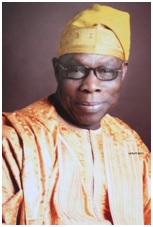TEMECULA, Californie, 16 juin 2021 (GLOBE NEWSWIRE) — Nikkiso Cryogenic Industries’ Clean Energy & Industrial Gases Group (le « Groupe »), une filiale de Nikkiso Co., Ltd (Japon), est fière d’annoncer la signature d’un accord pour qu’Asas Aljood devienne le Fournisseur de services agréé de Nikkiso Cryogenic Services (NCS) dans le Royaume d’Arabie saoudite.
Avec la croissance du marché au Moyen-Orient, cet accord permet au Groupe d’étendre sa présence régionale auprès des industries des gaz industriels, de l’hydrogène, du traitement du gaz naturel et de la pétrochimie. À partir du 1er juillet 2021, Asas Aljood utilisera ses ateliers locaux pour offrir un service après-vente et une assistance pour les pompes et les turbodétendeurs, y compris les emballages, les réparations, les pièces de rechange et le service sur site.
Asas Aljood, dont le siège social est basé à Dammam, nous aidera à renforcer notre présence régionale existante en plus des activités du Groupe au Moyen-Orient à Charjah (ÉAU).
« Le partenariat nouvellement formé avec Nikkiso et Asas Aljood nous confère une forte présence régionale en Arabie saoudite et renforce notre capacité à mieux servir les marchés du Moyen-Orient », a déclaré Jim Estes, président de Nikkiso Cryogenic Services. « Je suis impatient de continuer à fournir aux clients de Nikkiso un service et une assistance de la plus haute qualité en éliminant les temps d’arrêt coûteux de leurs opérations et processus. »
Asas Aljood est un fournisseur de premier plan de services d’assistance et d’entretien dans les secteurs du pétrole et du gaz, de la pétrochimie et de l’énergie, entre autres.
À PROPOS DE CRYOGENIC INDUSTRIES
Cryogenic Industries, Inc. (aujourd’hui membre de Nikkiso Co., Ltd) et ses entreprises membres fabriquent des équipements et petites usines de traitement du gaz cryogénique pour les secteurs du gaz naturel liquéfié (GNL), des services d’entretien de puits et du gaz industriel. Fondée il y a plus de 50 ans, Cryogenic Industries est la société-mère d’ACD, de Cosmodyne et de Cryoquip, ainsi qu’un groupe administré en commun comptant une vingtaine d’entités opérationnelles.
Pour tout complément d’information, veuillez consulter les sites www.nikkisoCEIG.com et www.nikkiso.com.
CONTACT AUPRÈS DES MÉDIAS :
Anna Quigley
+1.951.383.3314
aquigley@cryoind.com


